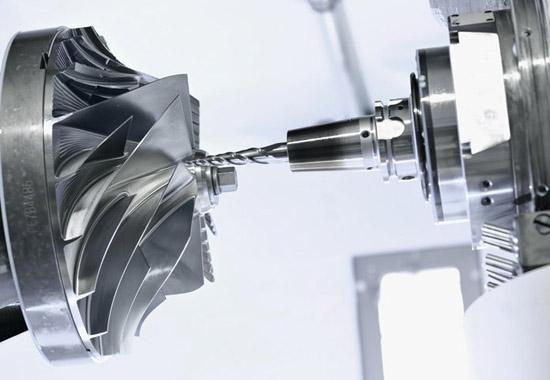Ti-6Al-4V, Grade 5 alloy (UNS R56400), also sometimes called TC4, is the most widely used titanium grade. It is a two phase α+β titanium alloy, with aluminum as the alpha stabilizer and vanadium as the beta stabilizer. This high-strength alloy can be used at cryogenic temperatures up to about 800°F (427°C). Ti-6Al-4V, Grade 5 alloy is principally used in the annealed condition.
As in other titanium alloys, Ti 64 alloy’s corrosion resistance is based on the existence of a consistent and continuous oxide layer which is formed spontaneously upon exposure to oxygen. It has excellent resistance to corrosion in seawater making it a good choice for use in offshore and subsea oil & gas operations where seawater corrosion and weight are concerns.
Ti-6Al-4V is resistant to general corrosion but may be quickly attacked by environments that cause breakdown of the protective oxide layer including hydrofluoric (HF), hydrochloric (HCl), sulfuric and phosphoric acids. Ti-6Al-4V resists attack by pure hydrocarbons, and most chlorinated and fluorinated hydrocarbons provided that water has not caused formation of small amounts of hydrochloric and hydrofluoric acids.
Ti-6Al-4V alloy is produced by primary melting using vacuum arc (VAR), electron beam (EB), or plasma arc hearth melting (PAM). Refining is achieved by vacuum arc remelting. Like other titanium alloys, Ti-6Al-4V has a modulus of elasticity of 107 Gpa (16.5 x 103 ksi), roughly half that of carbon steels.
Advantages of Ti-6Al-4V:
• Good corrosion resistance in seawater applications
• Low density/ high strength-to-weight ratio
• Low modulus of elasticity
• Low thermal expansion
• Non-magnetic
• Good fatigue resistance
• Good high temperature mechanical properties
Applications of Ti-6Al-4V:
• Implants and prostheses (wrought, cast or by Solid Freeform Fabrication (SFF);
• Titanium Metal Injection Molding;
• Additive Manufacturing;
• Parts and prototypes for racing and aerospace industry. Used extensively within the Boeing 787 aircraft;
• Marine applications;
• Chemical industry;
• Gas turbines
Titanium Engineers maintains inventory of Ti-6Al-4V in both bar and tube. We specialize in producing large diameter bar to various specifications, from industrial standards to more custom requirements for critical parts.
Chemistry (in wt. %)
| V | AL | Fe | O | C | N | H | Y | Ti | Remainder Each | Remainder Total | |
|---|---|---|---|---|---|---|---|---|---|---|---|
| Min | 3.5 | 5.5 | — | — | — | — | — | — | — | — | — |
| Max | 4.5 | 6.75 | .3 | .2 | .08 | .05 | .015 | .005 | Balance | .1 | .3 |
Physical and Mechanical Properties
While mechanical properties are a function of the heat treatment condition of the alloy and can vary based upon properties, typical property ranges for well-processed Ti-6Al-4V are shown below.
| Density | Young’s Modulus, GPa | Shear Modulus, GPa | Bulk Modulus,GPa | Poisson’s Ratio | Yield Strength, MPa (Tensile) | Ultimate Strength, MPa (Tensile) | Hardness, Rockwell C | Uniform Elongation, % | |
|---|---|---|---|---|---|---|---|---|---|
| Min | 4.429 | 104 | 40 | 96.8 | 0.31 | 880 | 900 | 36 (Typical) | 5 |
| Max | 4.512 | 113 | 45 | 153 | 0.37 | 920 | 950 | — | 18 |


One thought on “Ti-6Al-4V”
Comments are closed.